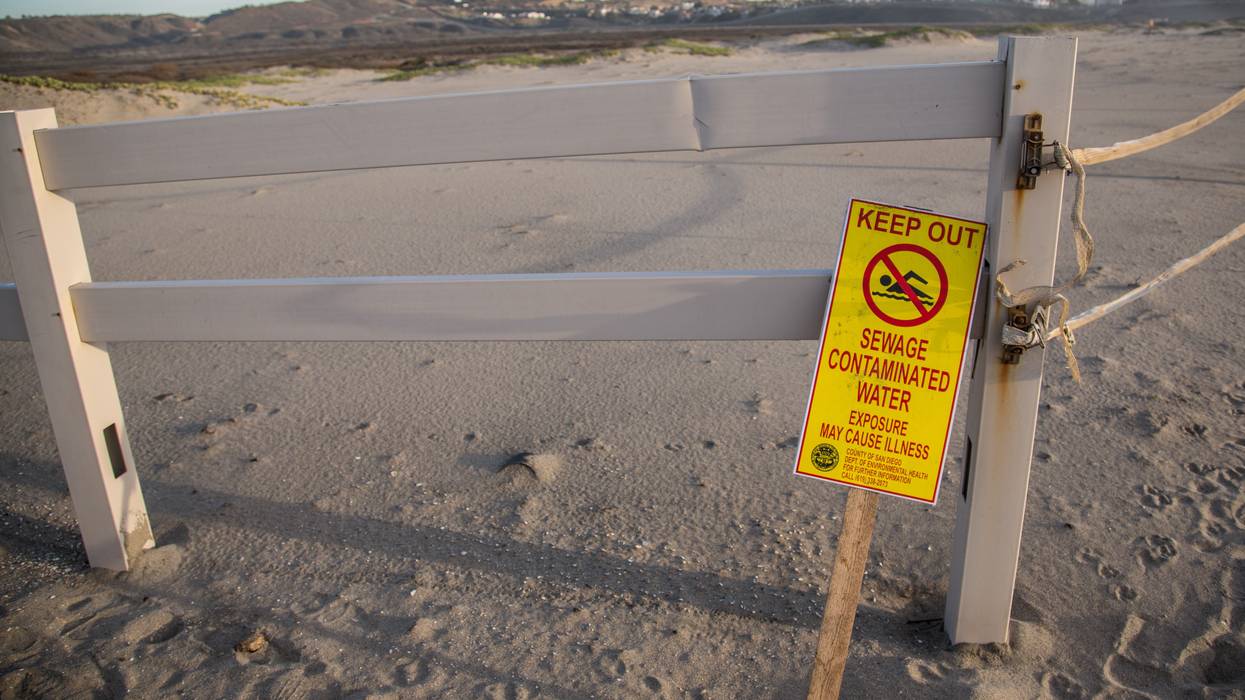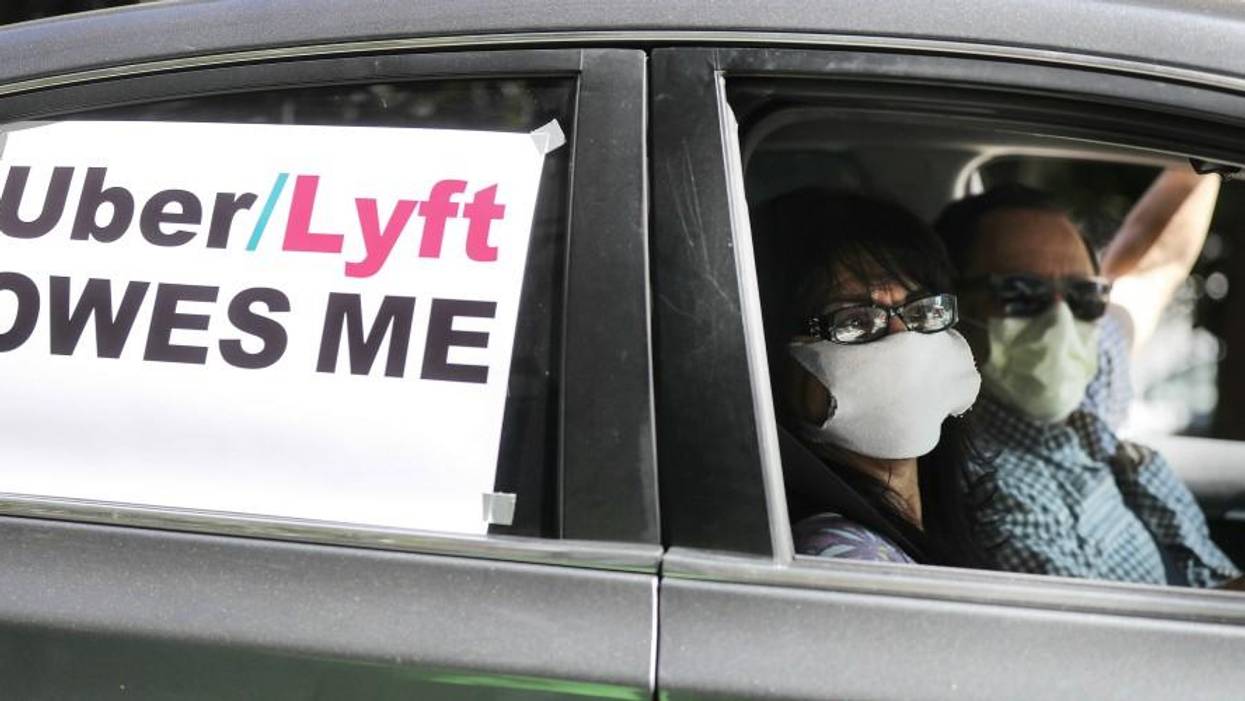Toxic Waters Know No Borders: The Tijuana River Crisis
We are facing a creeping ecological and public health disaster—one that has persisted for decades because of political inaction and a lack of cross-border communication and coordination. But solutions exist.
The intense, acidic stench of raw sewage penetrating your nose and clinging to the back of your throat and yellow “Keep Out, Sewage Polluted Water” warning signs have become far too “normal” for us, southern San Diego, California residents. The Tijuana River once carried stories of binational friendship, but now it carries toxic pollution, including human feces and disease, into the United States.
Originating in Mexico, the Tijuana River crosses the U.S.-Mexico border into an estuary and the ocean, shaping the ecology, culture, and identity of the binational communities it touches. But today, it’s a symbol of failure and neglect. The Tijuana River was recently named the second most endangered river in the United States, and for good reason—the toxic mix of raw sewage, chemical runoff, and bureaucratic inaction threatens not only the health of ecosystems but also the health of Southern California residents.
The river has been a dumping ground for untreated wastewater from Tijuana’s overwhelmed sewage infrastructure and for toxic and sometimes lethal industrial chemicals, including cyanide, primarily from U.S. factories in Mexico seeking lower environmental regulation policies. Thirty-five to 50 million gallons of contaminated water per day make their way through the Tijuana River Estuary, one of the largest remaining coastal wetlands in Southern California, before spilling into the Pacific Ocean.
Communities in southern San Diego County, especially Latinos near the river, are on the frontlines of this crisis. Communities impacted by the Tijuana River pollution include Imperial Beach (50.8% Latino), Coronado (19.4%), National City (65.8%), and Chula Vista (60.4%). People in these cities are suffering from coughing, sore throats, asthma exacerbations, skin rashes and infections, nausea, vomiting and diarrhea, headaches, and fatigue just from living in proximity to the toxic river. Even more troubling, many recreational fishers—again, often Latinos seeking affordable ways to feed their families—continue to fish in waters that carry dangerous levels of pathogens and heavy metals, unaware of the health risks.
The Tijuana River may be endangered, but it is not lost. With continued pressure, investment, and solidarity, it can once again become a source of life.
This isn’t just a neighborhood issue. The pollution affects Navy SEALs training at the Coronado naval base and U.S. Border Patrol agents, who frequently report infections after exposure. Then there’s its effect on our wildlife. The watershed is home to over 370 bird species and multiple endangered species that depend on clean estuarine habitats for nesting and feeding. The toxic flow erodes their ecosystems, disrupts food chains, and jeopardizes biodiversity along the Southern California coast.
We are facing a creeping ecological and public health disaster—one that has persisted for decades because of political inaction and a lack of cross-border communication and coordination. Yet solutions exist—and many are already underway—driven by the leadership of Latino residents who are boldly demanding action.
Across Southern California, Latino communities and advocacy groups are raising their voices, organizing town halls, urging local officials to act, and educating neighbors about the health and environmental impacts of pollution from the Tijuana River. Their efforts underscore the urgent need for federal government resolution and robust international collaboration to invest in wastewater infrastructure, enforce existing treaties, and modernize pollution control systems on both sides of the border.
At the same time, we must strengthen protections under the Clean Water Act, not weaken them as the federal government intends, and declare the Tijuana River pollution a national emergency due to the environmental disaster impacting public health. Protecting and restoring the Tijuana River will require viewing it as a shared responsibility between nations and communities. Clean water and health should not depend on your ZIP code or nationality. A river that knows no borders should not suffer from a lack of cross-border care.
Despite the daunting challenges, there is hope. The voices rising from Latino communities in southern San Diego are powerful and persistent, with ever-growing resonance. Their advocacy, led by newly sworn-in San Diego County Supervisor Paloma Aguirre, is making a difference. Federal funds have trickled into the region. Joint U.S.-Mexico commissions are revisiting decades-old agreements. And more Americans beyond California are finally beginning to see this crisis for what it is—a national emergency. Hispanic Access Foundation’s advocacy toolkit provides effective strategies to help address this issue.
The Tijuana River may be endangered, but it is not lost. With continued pressure, investment, and solidarity, it can once again become a source of life. The fight to restore this river is not just a campaign to clean a waterway and entry into the ocean; it is a movement to ensure that every community, regardless of language, location, or ethnicity, can breathe clean air, swim in safe water, and raise their children free from environmental harm.
We owe it to the river. We owe it to each other.


